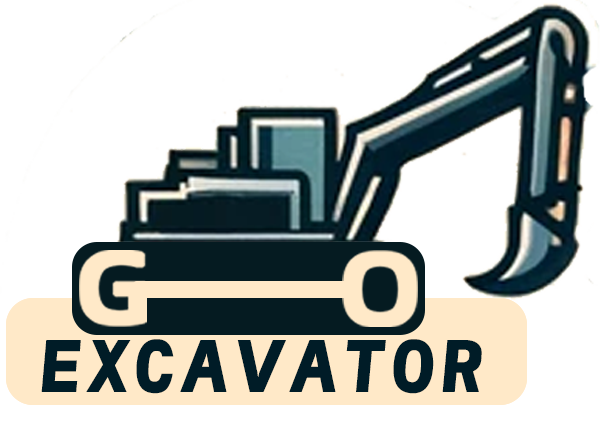
Small excavators, commonly known as mini excavators, are indispensable tools in the construction industry. They are designed to perform a variety of tasks such as digging, lifting, and demolition in confined spaces where larger machinery would be impractical.
The Role of Small Excavators in Modern Construction
These machines are particularly valued for their ability to navigate narrow and restricted areas, making them perfect for residential and urban projects. The adaptability of small excavators comes from their compact design, which does not sacrifice power for size, providing robust performance that belies their smaller dimensions.
Evaluating Your Project Needs
Before selecting an excavator, it is critical to thoroughly assess the specific requirements of your project.
Job Site Analysis
Space Constraints: Accurately measure the dimensions of the work area. Consider the turning radius and the height of the excavator to ensure it can operate without hindrance.
Soil Composition: Identify soil types (clay, sand, rock, etc.) to determine the necessary digging force and suitable bucket type.
Project Scope Definition
Excavation Depth and Volume: Estimate the volume of material that will need to be moved and the depth of excavation, as this will influence the size of the excavator and bucket capacity.
Material Handling Requirements: Evaluate what materials need to be handled — whether you are moving earth, lifting heavy objects, or breaking asphalt, this will dictate the type of attachments required.

Key Excavator Features to Consider
Selecting the right features will enhance the excavator’s efficiency and suitability for your project.
Size and Power Considerations
Operating Weight: Choose a model that can be supported by your current vehicle fleet for easy transportation.
Engine Power: Opt for an engine that provides enough power to handle the heaviest expected load without overburdening the machine.
Advanced Hydraulic Systems
Hydraulic Capacity: High-performance hydraulics are crucial for projects requiring precise manipulation and steady power delivery for tasks such as grading and landscaping.
Hydraulic Adjustments: Some models offer adjustable hydraulic settings, allowing operators to fine-tune the machine’s performance according to specific tasks.
Attachment Flexibility
Quick Couplers: These allow for fast attachment changes, increasing operational flexibility and reducing downtime.
Attachment Variety: Ensure the excavator is compatible with various attachments such as hydraulic breakers, augers, and clamps, which can significantly expand its utility.
Choosing Between Brands and Models
Research and Comparison
Brand Reputation: Investigate the market reputation of different manufacturers focusing on durability, reliability, and customer service.
Model Comparison: Compare multiple models based on their specifications, including hydraulic capabilities, engine power, and attachment options.
Budgeting for Your Excavator
Cost Considerations
Initial Purchase: Decide whether a new or used model fits your financial plan. Consider the long-term benefits of newer models, including less frequent repairs and higher efficiency.
Operational Expenses: Account for fuel consumption rates and maintenance costs. Newer models might offer better fuel economy and less frequent servicing needs.

Practical Purchasing Tips
Testing the Excavator
Performance Testing: Before purchasing, operate the excavator to ensure it meets your handling comfort and performance expectations.
Inspection: If opting for a used model, thoroughly inspect it for any signs of wear or mechanical issues.
Choosing a Dealer
After-Sales Support: Engage with dealers known for robust customer support and favorable warranty terms.
Availability of Parts: Ensure the dealer has a good supply chain for spare parts which is essential for minimizing downtime.
Selecting the Ideal Small Excavator
Selecting the right small excavator requires a meticulous evaluation of your project’s needs, a careful study of the machine’s features, and a strategic approach to budget management. By considering these factors, you can choose a mini excavator that not only fits your project requirements but contributes to higher productivity and efficiency.
A Comprehensive Guide to Buying a Excavator Second Hand
Purchasing a second-hand excavator can be a cost-effective solution for your construction or landscaping needs. However, buying used machinery comes with its own set of challenges and considerations. This comprehensive guide will walk you through [...]
Comprehensive Guide to Hyundai Mini Excavators: Features and Prices
Mini excavators have become indispensable tools in the construction and landscaping industries. Hyundai Construction Equipment, a global leader in heavy machinery, offers a range of mini excavators known for their reliability, efficiency, and advanced features. [...]
How to Extend the Service Life of Excavator Parts
Excavators are indispensable machines in the construction and mining industries. They perform heavy-duty tasks that demand robust components and meticulous maintenance. Extending the service life of excavator parts not only reduces operational costs but enhances [...]
Kymron Excavators: Innovative, Sustainable Construction Machinery
In the dynamic world of construction and heavy machinery, Kymron has emerged as a game-changer. Specializing in advanced excavator technology, Kymron is redefining industry standards with its commitment to innovation, efficiency, and sustainability. Company Overview [...]
Bulldozer vs. Wheeled Excavator: Which Machine is Better for Moving Soil?
Moving soil is a fundamental task in construction, landscaping, and earthmoving projects. Choosing the right machinery for the job can significantly impact efficiency, cost, and project timelines. Two of the most commonly used machines for [...]
Why Are Small Excavators Favored? A Comprehensive Guide
In the world of construction and landscaping, efficiency and versatility are key. Among the myriad of machinery available, small excavators have risen in popularity. But what makes them so favored? Introduction to Small Excavators Small [...]




